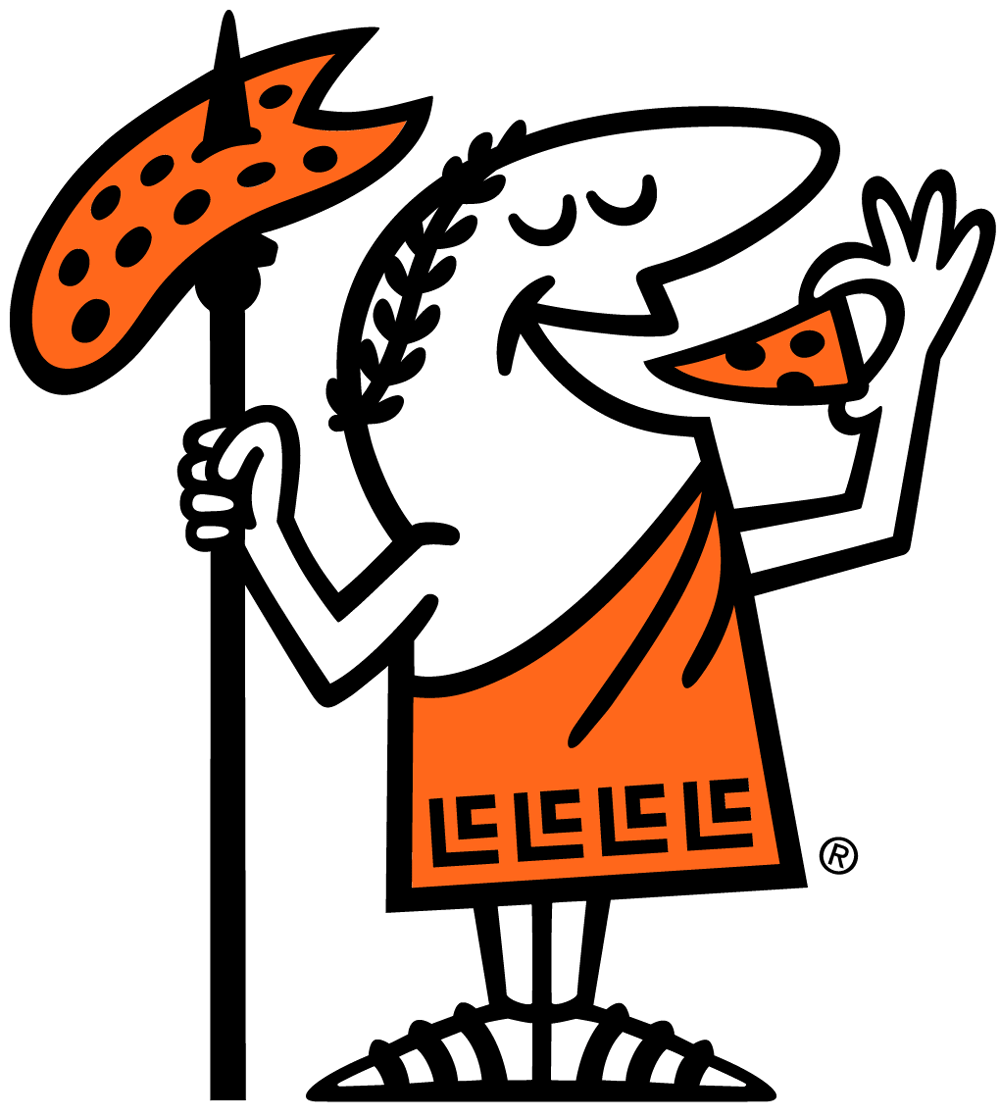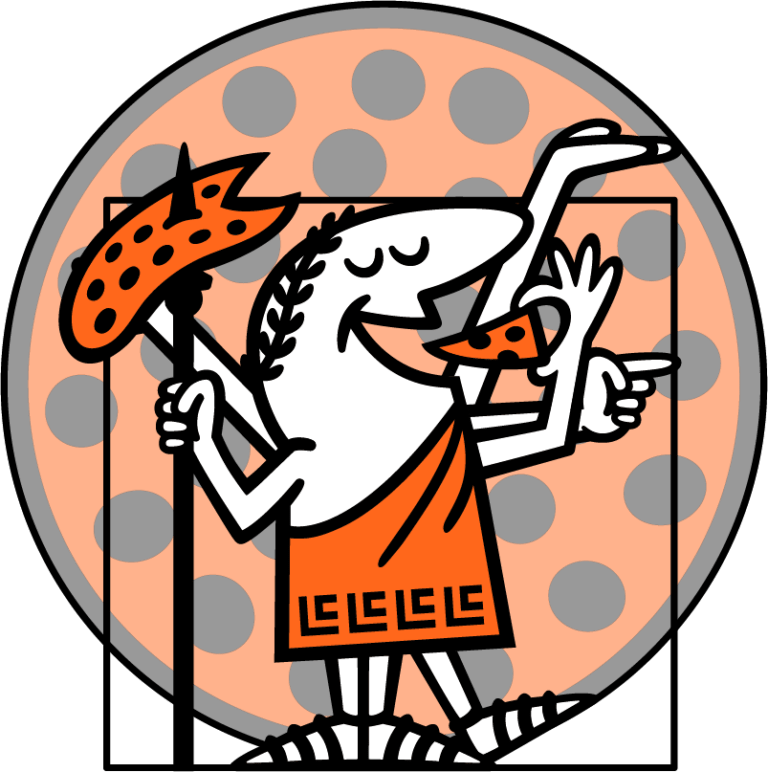A Slice Of Fun And Flavor
When we think of Little Caesars, our minds often drift to the delicious aroma of freshly baked pizza and the iconic "Hot-N-Ready" promise. However, there's more to this beloved pizza chain than meets the eye. The Little Caesars character not only embodies the spirit of the brand but also serves as a symbol of convenience, affordability, and fun in the fast-food landscape. This article dives deep into the history, personality, and impact of this quirky character that has captured the hearts of pizza lovers everywhere.
The Little Caesars character is not just a mascot; he is a cultural icon that has evolved over the years to reflect the changing tastes and preferences of consumers. With his signature mustache, chef hat, and playful demeanor, he represents the essence of the pizza chain's mission to provide quality food at a great price. As we explore the journey of this character, we will uncover how he has become an integral part of advertising campaigns and an emblem of the brand's identity.
In this article, we will also discuss the various marketing strategies employed by Little Caesars, highlighting how the character has helped in building brand loyalty and recognition. From his memorable catchphrases to his appearances in commercials, the Little Caesars character has played a significant role in the company's success story. Join us as we slice through the layers of history and fun surrounding this iconic figure!
What is the Origin Story of the Little Caesars Character?
The Little Caesars character made his debut in the 1980s, designed to create a memorable and relatable figure for the brand. He was created by the ad agency Campbell Ewald, which aimed to capture the essence of the brand's mission: providing delicious pizza at a great price. The character's playful and approachable persona helped to establish a strong emotional connection with customers, making Little Caesars a household name.
How Has the Character Evolved Over the Years?
Since his inception, the Little Caesars character has undergone various transformations, reflecting changes in branding and advertising strategies. Initially portrayed as a jolly Roman emperor, he has since seen a modern makeover while retaining his classic charm. His evolution has allowed the brand to stay relevant in a competitive market, adapting to changing consumer preferences while maintaining the core values that made Little Caesars popular.
What Are Some Key Features of the Little Caesars Character?
- Distinctive Appearance: The character is known for his exaggerated mustache, chef's hat, and colorful attire, making him instantly recognizable.
- Catchy Phrases: His slogans, such as "Pizza! Pizza!" have become part of popular culture and are synonymous with the brand.
- Fun Personality: The character exudes a lighthearted and fun vibe, appealing to families and children alike.
Who is the Voice Behind the Little Caesars Character?
The voice of the Little Caesars character has been performed by various actors over the years, adding a layer of personality and charm to the brand. Notably, the character was famously voiced by actor and comedian, Jerry Lewis, during the 1980s and 1990s. His comedic timing and unique voice helped to solidify the character's playful identity, making him a beloved figure in the world of fast food.
What Role Does the Little Caesars Character Play in Marketing?
The Little Caesars character is instrumental in the company's marketing campaigns. His presence in advertisements not only captures attention but also reinforces the brand's message of delivering quality pizza at an affordable price. The character's antics and humorous approach resonate with audiences, making the advertisements memorable and effective. By creating a relatable figure that embodies the brand's values, Little Caesars has successfully built a loyal customer base.
How Has the Character Influenced Brand Recognition?
The Little Caesars character has significantly influenced brand recognition and loyalty. His consistent appearance in commercials and promotional materials has helped to create a strong brand identity. The character's humorous and approachable demeanor makes customers feel connected to the brand, encouraging repeat business. With a recognizable figure representing the company, Little Caesars has solidified its place in the competitive fast-food industry.
What Are Some Fun Facts About the Little Caesars Character?
- The character has appeared in various forms of media, including television commercials, print ads, and online campaigns.
- His iconic "Pizza! Pizza!" tagline is one of the most recognized slogans in the fast-food industry.
- The character has been featured in promotional events and merchandise, further expanding his influence and reach.
How Does the Little Caesars Character Connect with Customers?
The Little Caesars character connects with customers on multiple levels. His humor and playful antics create a light-hearted atmosphere, making dining experiences enjoyable for families and friends. Additionally, the character's commitment to providing affordable and delicious pizza aligns with the values of many consumers. By embodying these principles, the Little Caesars character fosters a sense of loyalty and community among patrons.
What is the Future of the Little Caesars Character?
As the fast-food landscape continues to evolve, so too will the Little Caesars character. The brand is likely to explore new marketing strategies and digital platforms to engage with younger audiences. With the advent of social media and mobile technology, the character may take on new forms of expression, adapting to the preferences of a tech-savvy generation. Regardless of how he evolves, the core values of affordability and quality will likely remain at the heart of the Little Caesars character's identity.
Conclusion: The Last Slice of the Little Caesars Character
The Little Caesars character is more than just a mascot; he represents the fun, affordability, and quality that the brand stands for. From his playful personality to his memorable catchphrases, the character has left an indelible mark on the fast-food industry. As we look to the future, we can expect the Little Caesars character to continue evolving, adapting to the changing tastes of consumers while remaining a beloved figure in the hearts of pizza lovers everywhere.



ncG1vNJzZmixn6PAtr7IZqWeq6RjsLC5jq2pnqaUnruofY6loK2snJp6pK3ErJirq12YtaK%2BwJyrnqpencGuuA%3D%3D